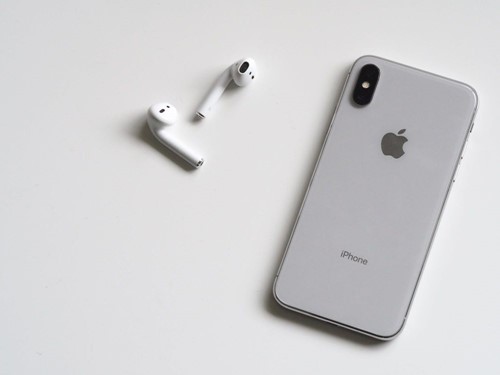
Every software development project is different in its own way and a mobile development project will differ significantly from a software development project for a desktop/laptop device. In addition, each mobile development project, on their own, is also different from one another in term of project scope, complexity, functionality and target audiences. However, there are a number of steps that are common for various app development project. In this article, we’ll examine the mobile app development steps which you should know in order to successfully implement your project.

1. Planning and Identify Specific Requirements
Target platform
One of the most often encountered question is to choose whether to develop your mobile app for iOS platform or Android one or both. Each platform provide its own advantages and disadvantages, if you want to cater to more than one platform at once, set your priorities and choose the market you want to join first.
Development type
If your app is only made to be available on only one platform (either iOS or Android), then you should opt for native app development. Otherwise, if you need your app to be available on both platforms (iOS and Android), then you might want to consider cross-platform or hybrid application development.
Monetization methods
If your app is the main channel of your business operation producing revenue, then you need to carefully think about how to monetize your app. There are many popular ways for mobile app monetization such as charging users a payment to download the app or offering your app for free and gain profit from incorporating in-app advertisements and/or in-app purchase.
All of these monetization methods can certainly be implemented on both iOS and Android platform.
2. Market research
The second step of your mobile app development process should be about market research. You can check-out the market by looking into your competitors who provide app with similar concepts to yours. Based on research results, you should have an understanding and overview about the app market and determine exactly how you want your app to be and how you can distinguish yourself from all the other similar apps which are already existing on the app market.
You should also pay particular attention to users’ feedback, for example: how do they suggest the improvments to help make your competitors’ app better? Which extra functionalities do they require? How do users find the overall performance of those apps? Etc. Based on those insights gathered, you can pick out all the best things that are already existed on the market and gain a competitive edge by providing a new solution to address all the existing issues which the other apps have.
3. App Design
Before contacting the app development company or professional designers to help with the design of your app. You should conduct users research and try to envision how you want your app come to life and work with the design team to make it happen. Basically, the design process would involve various steps with multiple designs for you to choose and finalize and then work on to improve upon the final design.
4. Hiring Mobile Developers or Outsourcing
When it comes to mobile app development, you are usually provided with two options of either hiring local developers and form an in-house IT team to develop your app or outsource the development task to an external agency who would help you taking care of the project. In order to select the right software outsourcing company for your mobile requirement, you should conduct a thorough enquiries process of the outsourcing vendors. Especially, take into consideration the following factors:
- Mobile development experience and technologies skills (required for your project)
- Portfolio of past projects;
- Industry/Domain knowledge;
- Case studies and demos.
5. Collaborate to work with development team
After choosing and hired the outsourcing partner, you should try to work closely with the development team in order to collaborate and produce a great product in the end. Communication is key to ensure the success of the project.
Also, it’s important that you select and agree upon the business model with your development partner early before the start of project. Some app owners only want to get involved in the development process as little as possible and get delivered with a product for a fixed price. On the other hand, many app owners prefer to work closely with the development team and keep up with the progress as well as making changes of the requirement and willing to pay extra for the incorporation the changes in later stages.
If it is the latter case, you should discuss the project timeline, management as well as the frequency and methods to communicate with the team of developers to determine the level of involvement required. As mentioned above, communication is key to improve the success of the project. You should frequently provide detailed feedbacks during the design, and development as well as testing stages to help the team continually improve upon the product.
6. App publishing
The next step of the app development process is to publish your app on the app store. Each app store (Google Play store for Android, and App store for Apple iOS) has their own specific requirements regarding app quality as well as security standards. The time taken for approval is also different depends on the platform your app is available on. Usually, this task is performed by the app development company when you outsource the project to them.
7. App maintenance
It’s worth mentioning that the app maintenance process is just as important as the development. Your project is not completed after its publication. To ensure your target users stay loyal and keep using the app, you need to constantly update and improve your app to keep up with the latest mobile app trends.
In addition, depends on the app category, your app might also need a technical team to help with the tech support as well as fixing of any potential errors that might happen.
Summary
Every mobile development project is different and unique in their own ways. However, the app development process generally consists of a series of stages as described above. Closely follow the above-mentioned steps will help you to have a better understanding so that you can formulate a well-defined plan for your app development requirement.



